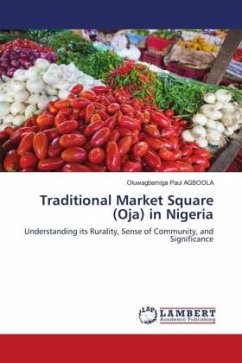
Non-Traditional Business School Product Foster Social Entrepreneurship
Social entrepreneurship in a business school environment
Versandkostenfrei!
Versandfertig in 6-10 Tagen
45,99 €
inkl. MwSt.

PAYBACK Punkte
23 °P sammeln!
The book aims to establish what role non-traditional business school programmes play in fostering social entrepreneurial networks in business schools. Central to any discussion on social entrepreneurship are the questions of who should and who can take responsibility for the needs of civil society (Roper and Cheney, 2005). Ideologically based questions emerge regarding the continuance and health of a civil society that is necessarily distinct from either the political or economic sector (Roper and Cheney, 2005). The importance of this book lies in the fact that it will highlight the current sh...
The book aims to establish what role non-traditional business school programmes play in fostering social entrepreneurial networks in business schools. Central to any discussion on social entrepreneurship are the questions of who should and who can take responsibility for the needs of civil society (Roper and Cheney, 2005). Ideologically based questions emerge regarding the continuance and health of a civil society that is necessarily distinct from either the political or economic sector (Roper and Cheney, 2005). The importance of this book lies in the fact that it will highlight the current shortcomings and positives of non-traditional business schools. The main finding of this book is the fact that individuals and organisations donate rather than getting actively involved in social entrepreneurial ventures. The best practices as are highlighted in this book should be researched in more detail in order for current non-traditional business school programmes to become more dynamic.












